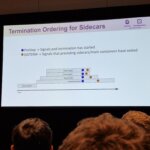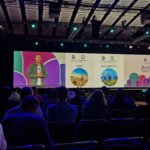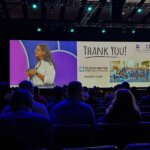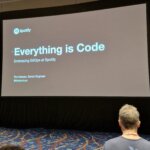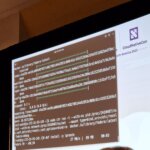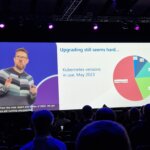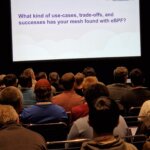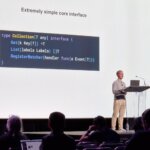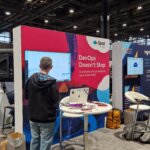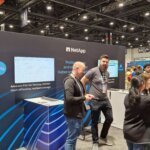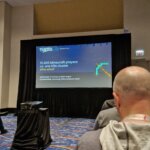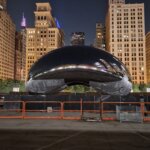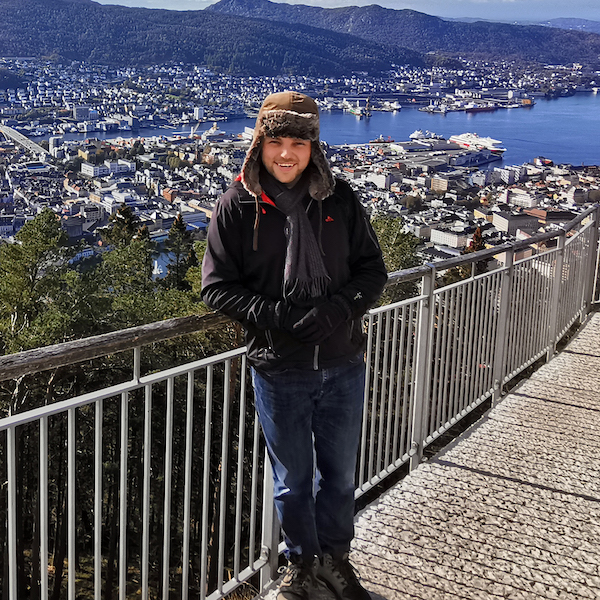KubeCon / CloudNativeCon North America 2023
| Categories: | Events |
|---|---|
| Tags: | CloudNativeCon Conference KubeCon Kubernetes |
Introduction
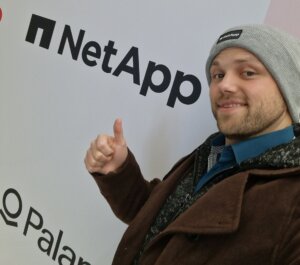
For the first time ever, one of our colleagues had the chance to visit the North American edition of KubeCon and CloudNativeCon in Chicago this year.
Our colleague Michael Sprengel who already works 8 years for credativ and has gained a lot of experiences with Kubernetes and the development of Kubernetes controllers in that time, is sharing his experiences from KubeCon and CloudNativeCon North America 2023.
So with no further ado, let’s hand it over to our colleague Michael.
Come fly with me back to Chicago
Hi folks, my name is Michael Sprengel – Professional Service Consultant here at credativ – and I want to share my experiences with you from this year’s KubeCon / CloudNativeCon in North America. So come with me and let me give you a first person view of all the talks and things that I was able to experience here in Chicago. You may not had the chance to visit the North American edition of KubeCon so far, so this is the best chance for you to get some insights which could make you think of also attending KubeCon and CloudNativeCon next year then.
Those editions will take place in Paris and Salt Lake City.
Chicago – The Windy City
The good thing about such conferences is not only the possibility to attend talks and learn about new technologies that you can use in daily projects but it’s also an opportunity to learn new cultures and leave with a bag full of new memories.
This year, the conference took place in Chicago that is also known as the Windy City. I was lucky enough to arrive on Saturday, so that I had a chance to pack my backpack and pay Chicago a visit a day before the conference started. Hereby, I was able to check some of Chicago’s well known sights like for example Lake Michigan or the mighty Millennium Park in the center of Downtown Chicago.
The only downfall to this was that Chicago’s Cloud Gate that is also known as The Bean. This landmark is currently under construction at, so that I could only take a picture through some construction fences. But other than that, the city has a lot to offer like Deep Dish and Thin Crust Pizza or some university you may want to visit. Chicago is definitely worth it.
Day 1: Operator Day
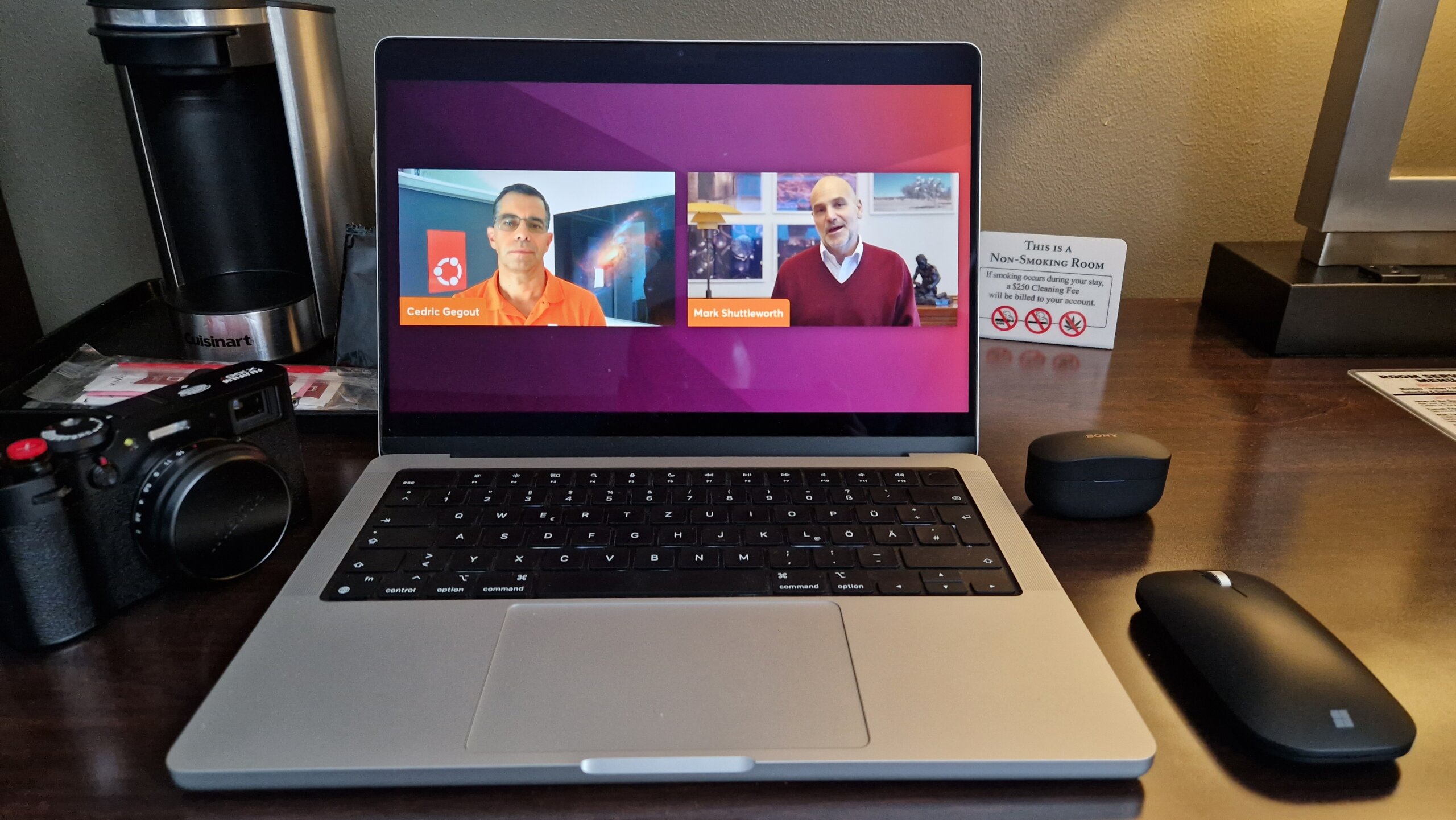
Besides of this wonderful city, the actual conference has also a lot to offer. If you’re lucky enough to get a All-access pass for KubeCon, you can already visit some CNCF-hosted Co-located events near the venue. But don’t worry. Even if you don’t have such a pass, you can attend some virtual events already.
For me personally, I attended the so called Operator Day by Canonical. It’s a full day event that takes place from 9am to 4pm. It gave me some pretty good insights in implementing Kubernetes operators the Canonical way by using Juju.
Unfortunately, the current edition from Chicago isn’t online so far, but you can check out the last Operator Day from Europe by watching the videos below:
You are currently viewing a placeholder content from Default. To access the actual content, click the button below. Please note that doing so will share data with third-party providers.
Day 2: First experiences from the venue
The second day was really mind blowing. If you never attended such a conference before, you will be surprised by the amount of talks as well as by the size of the actual venue.
After arriving at the venue, I had a chance to grab a breakfast and a coffee as well as attend the Opening Remarks in which leading Kubernetes and CNCF developers, engineers and ambassadors highlight the latest and greatest changes in Kubernetes and the CNCF space. Here, you could really feel how Machine Learning and AI is influencing Kubernetes and how features are added to this project to better support ML/AI.
Next to this, you have a big variety of talks that you can attend or you can go to the Solutions Showcase where all the major companies and sponsors have their booth. There, you can talk to maintainers or get in touch with companies that are using CNCF related projects or Kubernetes in their business. Typically some booths also offer so called Lightning Talks. These are like general talks but they tend to be shorter than the usual ones and they are mostly focusing on hands on sessions or live demos.
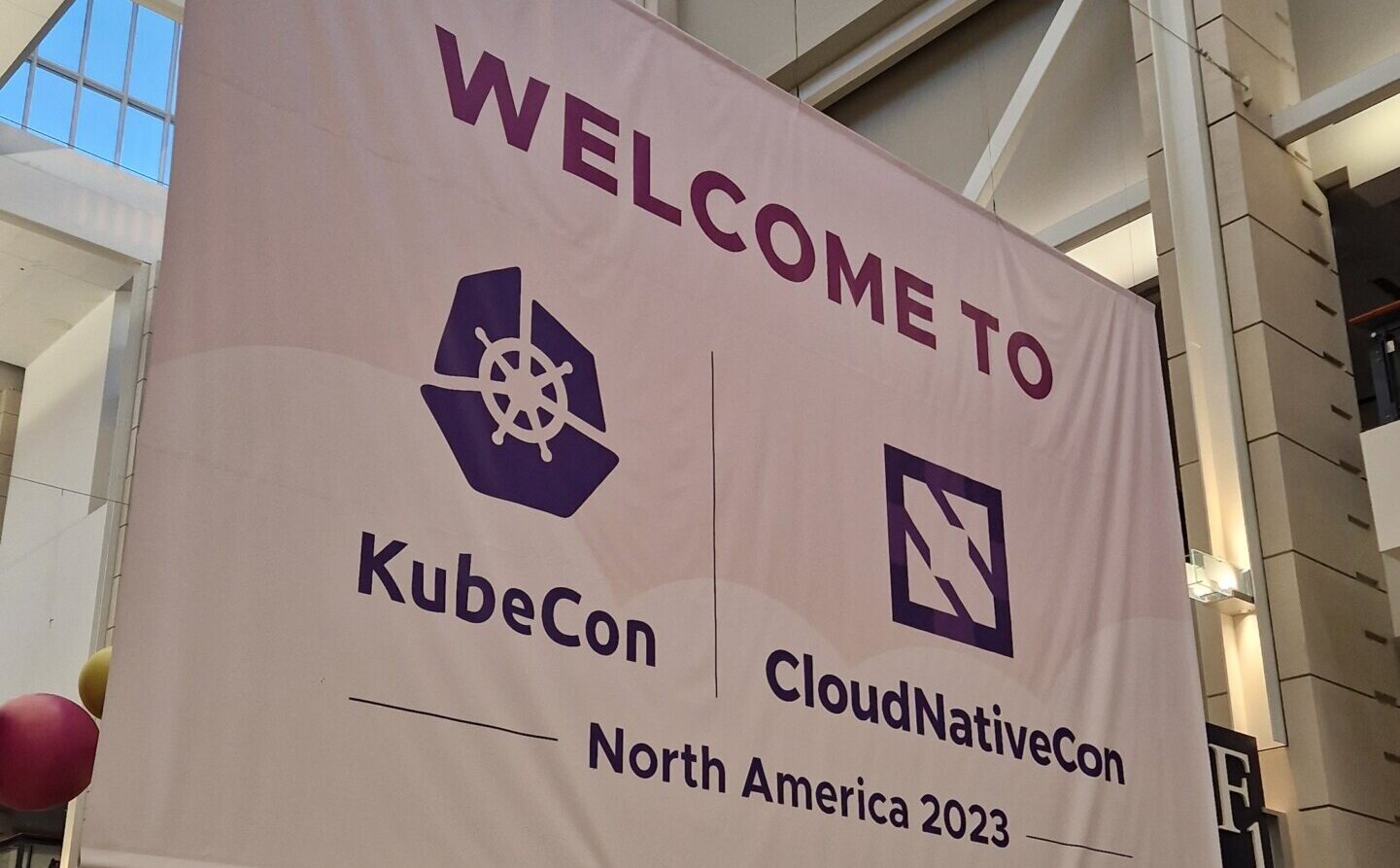
Day 3/4: Talks, talks and some more talks
In general, I was able to attend a lot of talks during the conference. Some of them were exactly what I was expecting and others however surprised me. Thereby, I visited the following talks:
Day 1
- 15,000 Minecraft Players Vs One K8s Cluster. Who Wins? – Justin Head, Super League Gaming; Cornelia Davis, Spectro Cloud
- It’s Never Too Late for PKI – Fundamentals: Building a Mental Model – Jacki Elliott, Microsoft
- High Performance, Low Latency Networking for Edge & Telco – Nupur Jain, Intel; Ian Coolidge, Google
- Take it to the Edge: Creating a Globally Distributed Ingress with Istio & K8gb – Jimmy Dyson, D2iQ
- Building Better Controllers – John Howard, Google
- Service Mesh Battle Scars: Techology, Timing and Tradeoffs – Lin Sun, solo.io; John Howard, Google; Thomas Graf, Isovalent; Flynn, Buoyant; Keith Mattix, Microsoft
Day 2
- Apply the Can Opener of Enlightenment: Lifting the Lid off Kubernetes Networking – Joe Thompson, HashiCorp
- Everything Is Code: Embracing GitOps at Spotify – Tim Hansen, Spotify
- Learning Kubernetes by Chaos – Breaking a Kuberntes Cluster to Understand the Components – Ricardo Katz, VMWare; Anderson Duboc, Google Cloud
- TikTok’s Global Service Accelerator – Vikram Si Siwach, TikTok/Bytedance
- Modern Load Balancing, Improving Application’s Resource Availability and Performance – Antonio Ojea, Google; Gerrit DeWitt, Google
- Istio: The Past, Present and Future of the Project and Community – Louis Ryan, solo.io; John Howard, Google
Day 3
- Insights and Gotchas from the Zero-Downtime Migration of 10000+ Cloud Hosted Etcd Key-Value Stores – Prabhakar Palanivel, Oracle Corporation
- Sidecar Containers Are Built-in to Kubernetes: What, How, and Why Now? – Todd Neal, Amazon; Sergey Kanzhelev, Google
- Cilium: From Service Mesh to Kubernetes and Beyond with eBPF – James McShane, SuperOrbital; Hmanth Malla, Datadog; Liz Rice, Isovalent; Thomas Graf, Isovalent
- Automate Production-Ready Cluster Using Crossplane Compositions and Kyverno – Dolis Sharma, Nirmata
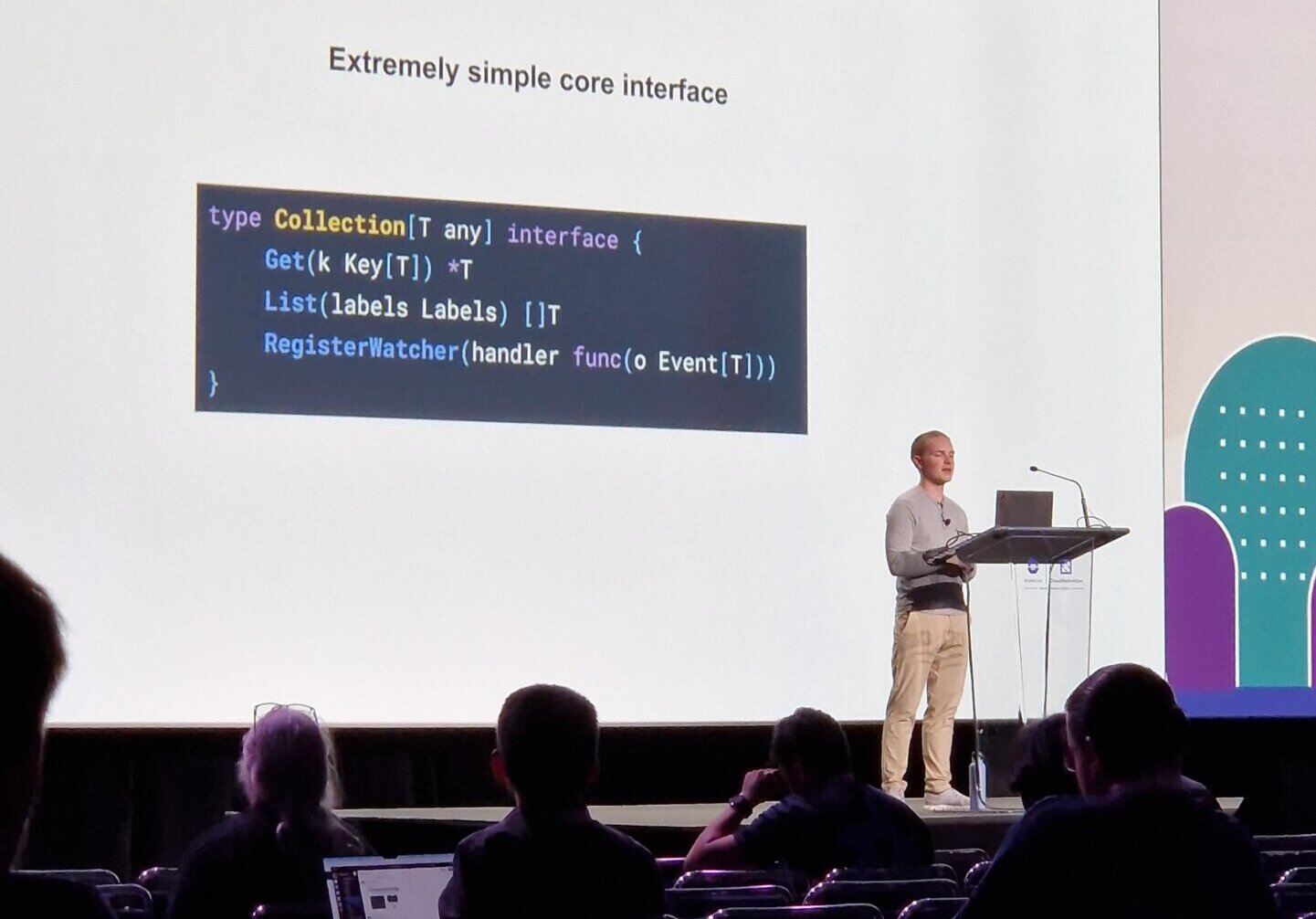
The Service Mesh Battle Scars talk was one of the talks that surprised me, because it was basically and public battle between the maintainers of the biggest Service Mesh solutions in Kubernetes.
- Cilium
- Istio
- linkerd
It surprised me because it was quite interesting to see how each of those projects were arguing differently to specific topics like transport encryption as well as Sidecar, Sideless or Ambient mode. As an attendee, you could really get a feeling of what thoughts each project put into specific topics before realizing them. Especially the topic about encryption caught my attention. Istio and linkerd simply use mTLS for encryption, whereas Cilium now tries to use TLS for the initial handshake while using the resulting encryption key for IPSec to implement transport encryption. This concept led to a heavy discussion if this approach is still considered to be secure since Cilium is only reusing some part of TLS instead of using it completely and usually reusing well known and accepted security algorithms is always preferred in modern IT.
Next to this, it was also pleasing to attend the Spotify talk in which Tim Hansen explained how the engineers at Spotify implement GitOps and what effort it takes to create a new project / repository that should be deployed on production. Spotify uses some self-written solutions to achieve this and overcome some limitation that already existing solutions might have. For building and deploying for example, Spotify uses their own CI/CD solution Tingle. Tingle was created in 2017 to serve as the centralized CI/CD system for backend, data and web services and it thereby replaced 200 stand-alone Jenkins machines. More information about this, can be found here:
You are currently viewing a placeholder content from Default. To access the actual content, click the button below. Please note that doing so will share data with third-party providers.
Although this talk mainly focused on Spotify and their GitOps tools, the presenter also showcased open source tools which helps to accomplish similar functionality without relying on Spotify’s own tools.
Overall, the majority of talks really helped me to broaden my knowledge regarding Kubernetes and the solutions out there. Only some talks didn’t match my expectation, but even then you still have plenty of other talks to choose from.
Get the first person view
If you want to get an idea of how such a conference looks like, I create three videos which let you experience the conference similar to what I was able to experience. Give it a try and visit KubeCon and CloudNativeCon 2023 with me again!
Conclusion
Having the opportunity to travel to Chicago and experience KubeCon and CloudNativeCon for the first time was an one in the lifetime experiences. You not only have the chance to get insights to so many CNCF related projects but it’s also a good opportunity to get in touch with developers, engineers, managers and other people who use Kubernetes on daily basis. If you have the chance to visit such a conference, I would highly recommend to take the chance and attend them.
On KubeCon and CloudNativeCon, I learned a lot about new stuff and got an idea of design decision that probably will help me to solve some upcoming challenges in one of my own projects and which I wouldn’t know about if I hadn’t attended this conference. Thereby, one quote from Dr. Angel Diaz, VP Technology Capabilities & Innovation at Discover Financial Services really stick to my head:
Code, Community, Culture
And this is what it’s all about. You not only learn new stuff that you can use in your code, but you become a part of a community and get use to a culture which enables you to contribute to projects that are the baseline of most of our daily projects.
With a lot of Deep Dish Pizza in my stomach and a lot of new knowledge in my head, I’m happy to return from KubeCon North America and start working on my Kubernetes projects again.
Thanks for sticking around with me and I hope to see you on next year’s KubeCon and CloudNativeCon, too.
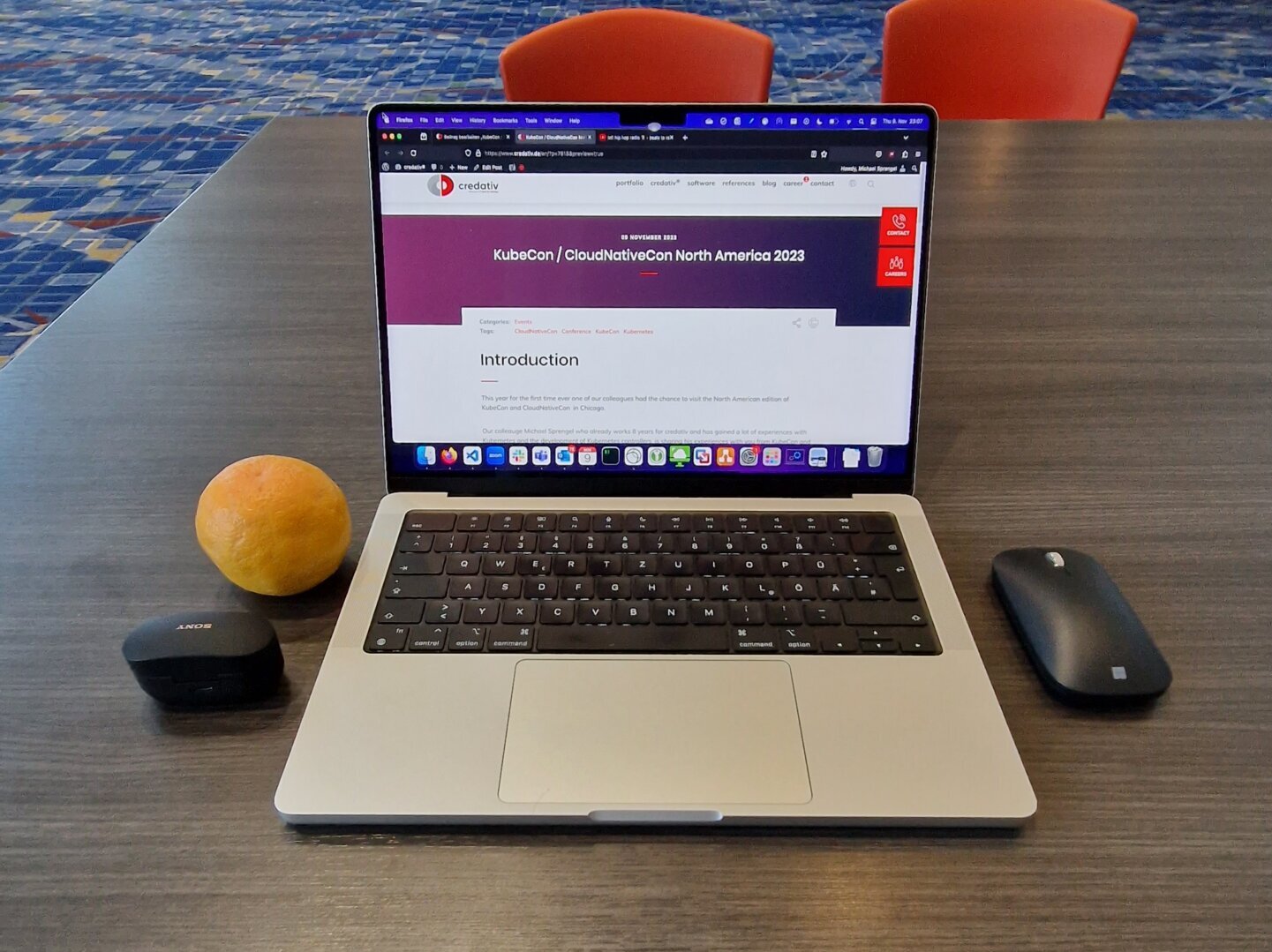
And by the way, if you’re searching for experts in Kubernetes and CNCF related topics, give our sales department a call and we might be able to help you with that.
| Categories: | Events |
|---|---|
| Tags: | CloudNativeCon Conference KubeCon Kubernetes |
About the author
Michael Sprengel
Sr. Professional Service Consultant
zur Person
Michael Sprengel has been with NetApp since 2015, after completing his Bachelor degree of computer science at the University of Applied Science called Hochschule Niederrhein. After finishing his study, he started his career as a consultant and became one of the team leaders in our company.

